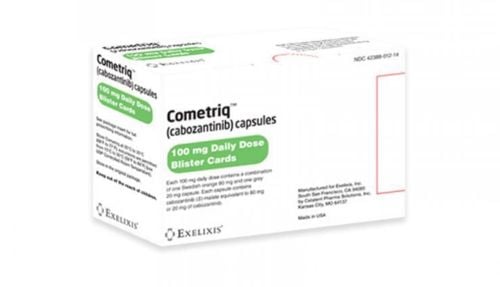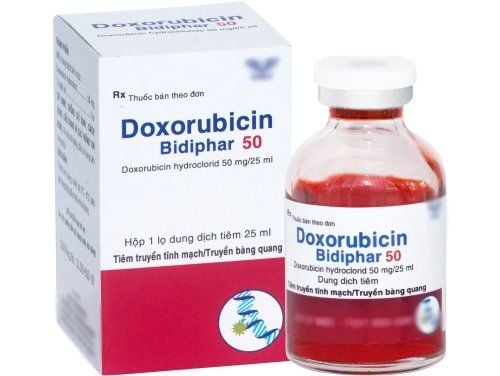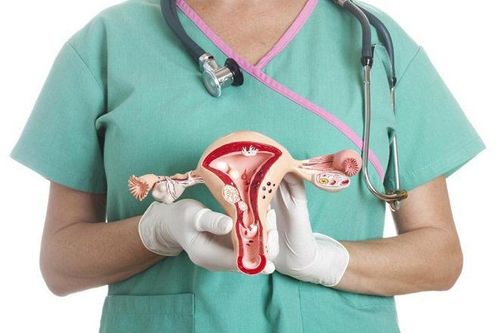This is an automatically translated article.
Alpelisib is a drug for the treatment of PIK3CA mutated breast cancer, which has progressed or metastasized to nearby areas in the body for both men and women. In order to minimize the side effects and maximize the therapeutic effects of Alpelisib, patients need to strictly follow the instructions of the specialist.
1. What is Alpelisib?
Alpelisib belongs to the class of phosphoinositide 3-kinase (PI3K) inhibitors, which are used in both men and women going through menopause with HR-negative, HER2-negative breast cancer that has progressed or metastasized to other organs in the body. Alpelisib can be used in combination with fulvestrant (Faslodex) to help treat breast cancer that has spread to nearby tissues or other parts of the body.The main ingredient in Alpelisib is piqray, which helps prevent the spread of cancer cells in the body by inhibiting the signals that cause cancer cells to multiply. Alpelisib is available in the form of film-coated tablets, with strengths of 50mg, 150mg or 250mg.
2. Indications and uses of Alpelisib
2.1 Indications to use Alpelisib Alpelisib is usually prescribed by doctors for the following specific cases:
Patients with human epidermal growth factor receptor (HR) positive. Treatment of patients sensitive to HER2 receptors. Treatment of postmenopausal men and women with PIK3CA mutated breast cancer. Treatment of advanced breast cancer during or after endocrine therapy. 2.2 How the drug Alpelisib The active ingredient piqray interferes with the growth of cancer cells and then destroys them. However, the drug can affect normal cells in the body, so patients may experience some unwanted side effects.
Absorption: After oral administration, Alpelisib will take about 2-4 hours to reach peak plasma concentrations (Tmax). It is estimated that alpelisib has an optimal bioavailability of >99%, however, it is lower if taken with food (nearly 68.7% at the 300 mg dose). In general, steady-state plasma concentrations of piqray are reached after approximately 3 days of dosing. Distribution: According to studies, the degree of binding of Alpelisib to plasma proteins is moderate. Alpelisib is evenly distributed between plasma and red blood cells, with an average blood-to-plasma (in vitro) ratio of about 1.03. At steady state, the volume of distribution of alpelisib is 114 liters.
3. Dosage and how to use Alpelisib
3.1 Alpelisib dosage The dose of Alpelisib will be determined based on each different patient population and should be taken according to the doctor's instructions. In addition, the number of doses of Alpelisib to take each day and the interval between doses also depend on the health problem that the patient has.
When treating breast cancer with Alpelisib, patients can refer to the following doses:
Adults: Take 300mg (including 2 150mg tablets) / time / day. Children: Do not use alpelisib unless directed by your doctor. When alpelisib is combined with fulvestrant, the recommended dose for fulvestrant is 500 mg orally on days 1, 15, and 29 and once a month thereafter.
If you miss a dose of Alpelisib and it is within 9 hours of your usual dosing time, try to take it as soon as possible. However, if you have missed a dose for more than 9 hours, skip the missed dose and take the next dose at the same time as your doctor recommends. If you vomit after taking alpelisib, you need to avoid taking another dose instead, it is best to wait and take the next dose at the prescribed time.
3.2 How to use Alpelisib Alpelisib drug Alpelisib is made in the form of film-coated tablets, so patients can take the drug orally. Before and during treatment with Alpelisib, patients should carefully read the instructions on the package or follow the instructions of their doctor.
In general, Alpelisib is taken with food and at the same time of day. When taking, be sure to swallow the tablet whole, and avoid breaking, crushing, or chewing it. In case of vomiting after taking a dose of Alpelisib, the patient should not take the replacement dose but wait until the next dose.
The active ingredient piqray in alpelisib can cause severe diarrhea, leading to dehydration, kidney damage, and life-threatening. If diarrhea occurs, the person can take the anti-diarrheal drug loperamide (Imodium) and try to drink plenty of fluids.
4. What side effects does Alpelisib cause?
During the use of Alpelisib, patients may experience some noticeable side effects. If signs of an allergic reaction such as difficulty breathing, hives, itchy rash, irritability, swelling of the face/throat, rapid heartbeat occur; or experience a serious skin reaction such as burning eyes, skin pain, fever, skin bruising, blistering or peeling, the patient should immediately notify the medical facility.
In addition, patients also need to seek medical help if after taking Alpelisib, they experience reactions that have serious effects on many parts of the body, including:
Unusual bruising. Yellow skin, yellow eyes. Severe weakness. Muscle pain. Rash on the skin. Fever or swollen glands. Hair loss, heartburn or headaches. Vaginal dryness. Stomachache. Besides the above side effects, patients may also experience other dangerous symptoms such as:
Continuous or severe diarrhea. Chest pain, shortness of breath and cough. Mouth sores/blisters, swollen/red gums, difficulty swallowing. Unusual fatigue, cold hands and feet, or pale skin. Little or no urinating. Increased thirst, high blood sugar, dry mouth, confusion, fruity breath, weight loss or hunger.
5. Some cautions during treatment with Alpelisib
Before deciding to treat breast cancer with Alpelisib, patients need to be careful about a few things below:Avoid taking Alpelisib if there is a history of allergy to qipray or other active ingredients in the drug. Tell your doctor if you have diabetes or have symptoms of a serious skin rash (for example, peeling skin, redness, burning pain, burning eyes, blistering of the mouth or lips). Although Alpelisib is indicated for use in postmenopausal women (who are no longer able to become pregnant), you will still need to have a negative pregnancy test before starting treatment with alpelisib. The drugs fulvestrant and alpelisib can affect fertility in both men and women. Therefore, patients need to weigh the benefits and risks of the drug before using it if they are of reproductive age. Women should avoid breast-feeding while being treated with Alpelisib and for at least 7 days after the last dose. Above is important information about the drug Alpelisib, understanding the drug will help the patient use process more effectively.
Please dial HOTLINE for more information or register for an appointment HERE. Download MyVinmec app to make appointments faster and to manage your bookings easily.













